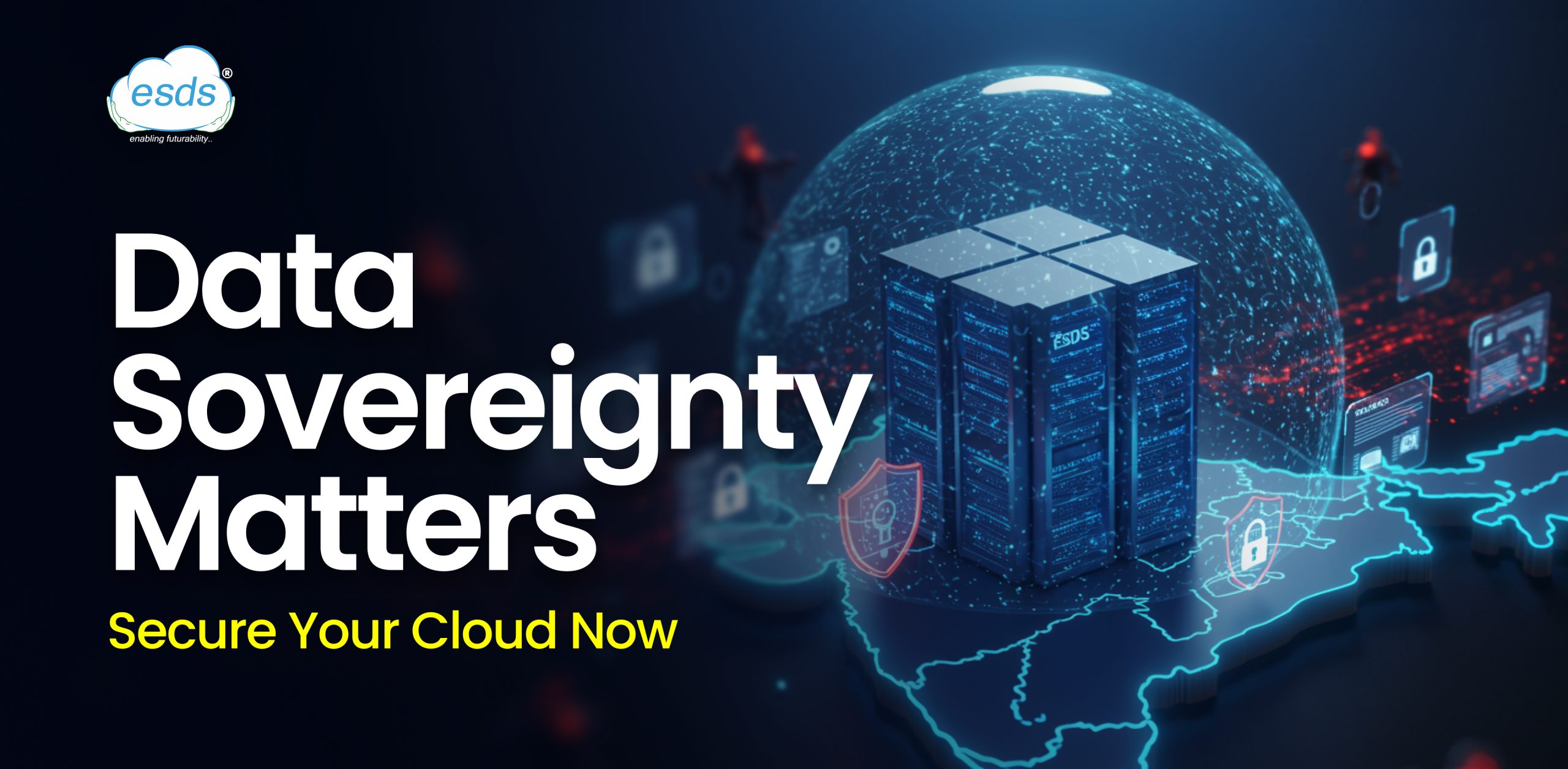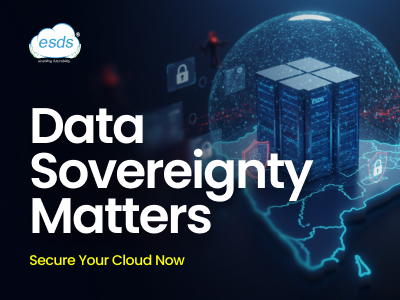How Data Sovereignty Matters: Secure Your Cloud Now

Different nations and areas have different data protection regulations, standards, and procedures, which can affect how information is handled, saved, and accessed. These laws frequently seek to safeguard private data, guarantee data security, and stop illegal access or disclosure. Therefore, determining whether a jurisdiction’s data sovereignty applies to your data at any given time becomes essential as a result. Navigating these legal restrictions can be very difficult because data sovereignty rules are in place in more than 100 countries.
When Indian companies adopt cloud computing, a crucial question arises: Where does your data actually reside, and who is in charge of it? The cloud market in India is anticipated to develop to a value of US$21.4 billion in 2025 alone, and it is anticipated to reach US$52.2 billion in 2030. This serves to highlight the nation’s fast-growing cloud infrastructure’s scope and strategic significance. When Indian companies adopt cloud computing, a crucial question arises: where does your data actually reside, and who controls it? Additionally, review provider locations and contractual terms to confirm accountability and compliance.
Let’s examine why companies are starting to place a high premium on data sovereignty and how ESDS India Sovereign Cloud provides a compliant solution.
What is Data Sovereignty?
India’s surge in banking, healthcare, governance, and education is generating vast volumes of sensitive citizen and enterprise data. Yet ~70% of Indian organizations (Source) still host critical workloads on foreign clouds (MeitY, 2024).
Fundamentally, data sovereignty is the idea that information is governed by the laws and systems of government of the country in which it is gathered, stored, or processed. Regardless of the home jurisdiction of your company, if your data is physically located in a foreign nation, it is governed by the laws of that nation. This includes cloud sovereignty (making sure your cloud provider conforms with regional laws and standards) and digital sovereignty (a government’s or organization’s ability to control its digital ecosystem).
Why Does Data Sovereignty Matter in Modern Enterprise?
- Legal Compliance: Strict guidelines for data privacy and handling are imposed by laws like the Digital Personal Data Protection Act (DPDP) in India, the CCPA in California, and the GDPR in Europe.
- Risk management: Unexpected business liabilities may arise from exposure to foreign surveillance laws, subpoenas, or government orders.
- Data Security and Trust: Clients and interested parties are calling for more information about where and how their data is handled.
Key Concepts in Data Governance
Understanding the full scope of data sovereignty means grasping related concepts:
- Modern business must go beyond baseline security and focus on Data Privacy & Data Protection. Data privacy ensures information is only used with consent, while data protection involves the technical and organizational measures to prevent unauthorized access or misuse.
- Localization of data refers to laws requiring data to be stored and processed within specific national borders.
- Data residency involves policies specifying where data may be stored geographically, often tied to internal risk and compliance frameworks.
These concepts are particularly relevant as organizations adopt multi-cloud or hybrid-cloud solutions.
Overcoming Cloud Sovereignty Challenges: What to Do
Cloud adoption introduces powerful scalability and agility but raises important questions:
What is Sovereign Cloud?
A cloud platform that is designed to offer total data sovereignty is known as a sovereign cloud. This indicates that your data is kept, processed, and managed in the nation where it is owned, in compliance with national regulations, and is not subject to interference from foreign governments.
Cloud Data Sovereignty in Practice
Business leaders should determine whether their cloud providers offer:
- Local data centers and “community cloud” services.
- Open adherence to regional laws.
- Features for preventing data loss, preventing data leaks, and protecting against data leaks.
- Boundaries, both logical and physical, that prohibit the transfer of data internationally.
Building a Comprehensive Data Security Strategy
Robust security procedures are inextricably linked to strong data sovereignty:
- Strong access controls, frequent audits, and encryption by default are all components of data security in cloud computing.
- Cloud data protection includes granular permissions, multi-factor authentication, and well-defined disaster recovery plans.
- Privacy and Data Protection: Comply with privacy-by-design guidelines when processing data.
Comparison Between Traditional Cloud vs Sovereign Cloud
Here is a comparison summarizing the key differences between Traditional Cloud and Sovereign Cloud:
| Feature | Traditional Cloud | Sovereign Cloud |
| Data Residency | Data may be stored in multiple locations | Data stored within specific geographic boundaries |
| Compliance | Compliance may vary depending on provider and the location | Greater control over data access & management |
| Governance & Jurisdiction | Data control may be shared with the cloud provider | Governed within specific country/region with strict adherence to local laws. |
| Security | Standard cloud security measures (encryption, access controls) | Enhanced security with local control, encryption, and network |
| Performance | Performance depends on global infrastructure spreading | Can offer improved performance via localization reducing latency |
How is ESDS Cloud helping businesses achieve data sovereignty?
ESDS Sovereign Cloud addresses the challenges of data sovereignty. Our cloud solution provides several advantages:
- Boosts national data security by cutting reliance on foreign cloud providers.
- Tackles cybersecurity threats and data privacy issues.
- Follows India’s changing data laws.
- Helps economic growth through investment in local cloud infrastructure.
- Cuts costs linked to managing data overseas.
Also, to handle these issues, options like ESDS Community Cloud give local cloud infrastructure built for Indian companies and government bodies. By keeping your data in the country, ESDS makes sure you follow national rules for data control, data privacy, and cloud data protection. It also backs key programs with top-notch security and disaster recovery.
Pick a cloud that gets your tech needs, plus your legal, rule-based, and long-term plans. In today’s world where data moves, having control over your cloud and keeping data local isn’t just nice to have—it’s key for business.
Take Control Your Data with ESDS Sovereign Cloud
Ensure compliance, avoid legal exposure, and protect your critical data, all within India’s borders.
Explore ESDS India Sovereign Cloud
- How Modern Data Centers Power AI at Scale in 2026 - February 23, 2026
- How To Choose a Cloud GPU Provider In 2026 - January 30, 2026
- 15 Critical DBaaS Migration Questions Every CTO Needs to Ask for a Successful Migration - January 27, 2026
